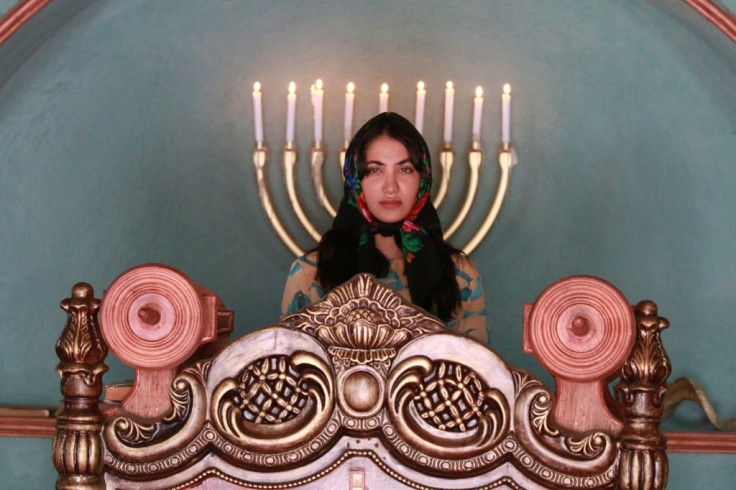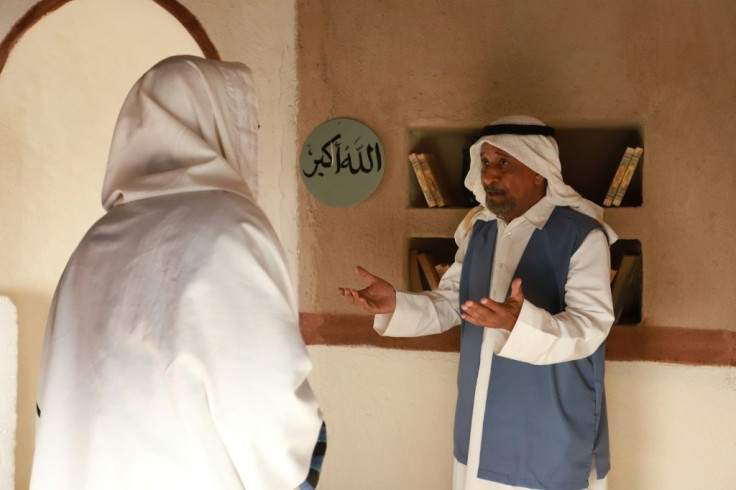Saudi Ramadan TV Dramas Invite Scrutiny Of Israel Ties
Two Ramadan dramas on a Saudi-controlled TV network have stirred controversy as they test public perceptions of quietly warming relations between the Gulf kingdom and Israel.
Most Arab states including Saudi Arabia have no official diplomatic ties with Israel.
But both sides are pursuing what one think tank calls a "tepid dance" to furtively build relations on the basis of shared animosity towards Iran.
Now, two taboo-busting series during the holy fasting month --- the peak television season --- have fuelled speculation that Riyadh is trying to openly normalise closer ties with the Jewish state.
A young character in "Exit 7", which depicts the journey of a middle-class family through a rapidly modernising Saudi Arabia, raised eyebrows when he befriended an Israeli boy through an online video game.
In another controversial scene, one Saudi character argues for building trade ties with Israel, saying Palestinians are the real "enemy" for insulting the kingdom "day and night" despite decades of financial support.

Another show called "Umm Haroun", ("the mother of Haroun"), portrays a Jewish community in a village in Kuwait in the 1940s.
Social media piled scathing criticism on the shows, with multiple Twitter users saying their aim was to promote "normalisation with Israel".
The shows are produced by the influential Arab satellite network MBC, effectively under Saudi government control after its founder --- media mogul Waleed al-Ibrahim --- was detained with other elite businessmen at Riyadh's Ritz-Carlton hotel in a 2017 anti-corruption campaign.
They stand in contrast to "The End", a popular Egyptian sci-fi drama that provoked fury in Israel after it predicted the collapse of the Jewish state.
MBC said its shows were among the most popular during Ramadan, garnering top ratings in the region.
"The Middle East has been stereotyped for decades as a region of fear, bloodshed, hatred, extremism," MBC spokesman Mazen Hayek told AFP.
"The shows have sought to project another image of the region that embodies hope, tolerance, inter-religious dialogue. The accusation of 'normalisation' is a bit outdated in the context of globalisation and hyper connectivity."

But observers say the shows may be an attempt to normalise the debate on normalisation.
"These shows are useful for the Saudi state to understand where people stand on Israel and Palestine," said Aziz Alghashian, a lecturer at Essex University specialising in the kingdom's foreign policy towards Israel.
"These shows function as a gauging tool and feel out peoples' reactions."
This is hardly the first such attempt.
Earlier this year, the kingdom announced the screening of a Holocaust-themed film for the first time at a movie festival, before it was cancelled due to the coronavirus pandemic.

Multiple Saudi media columnists have shrugged off the MBC controversy, reiterating the kingdom's official stance that a settlement of the Israeli-Palestinian conflict is a precondition for normalising ties.
But relations appear to be warming regardless, in a shift spearheaded by Israeli Prime Minister Benjamin Netanyahu and Saudi Crown Prince Mohammed bin Salman.
The cooperation saw Riyadh welcome US President Donald Trump's Middle East peace plan -- skewed in favour of Israel -- even as many others in the Arab world rejected it.
Saudi Arabia quietly opened its airspace in 2018 for the first time for an Israel-bound passenger plane.
Other Gulf states appear to be adopting a similar approach, with Oman hosting Netanyahu in October 2018 in the first visit of its kind in more than two decades.
The United Arab Emirates flew its first publicly announced flight to Israel on Tuesday when Etihad Airways transported medical supplies to Palestinians.
A surge in tensions between Tehran and Riyadh and Saudi attempts to attract foreign investment to fund its ambitious Vision 2030 economic reforms appear to be pushing the kingdom closer to Israel than ever.
"The Saudis recognise the important role that Israel plays in the region," said Marc Schneier, an American rabbi with close ties to the kingdom and the Gulf.
"Just a couple of years ago, (Prince) Khalid bin Salman told me that the kingdom knows that Israel is an integral part of their achieving their 2030 economic plan. That is a major statement and really shows the warming of the ties," Schneier told AFP.
Saudi authorities did not respond to a request for an interview with Prince Khalid, the younger brother of the crown prince.
A Saudi official said the kingdom's position seeking a comprehensive Israeli-Palestinian agreement based on a two-state solution "has not changed".
"Once that is achieved, the kingdom does not see an obstacle to the establishment of normal relations that would benefit... the region, including the kingdom's Vision 2030," the official told AFP.
That remains a distant prospect, but Saudi Arabia has pursued a bold outreach to Jewish figures in recent years even as it appears wary of a public backlash.
In February, the Saudi king hosted a Jerusalem-based rabbi in Riyadh for the first time in modern history.
Israeli media published a photograph of rabbi David Rosen with King Salman, hailing it as a "revolutionary moment".
But the official Saudi Press Agency omitted Rosen's name from its dispatch and the photograph published on its website cropped out the rabbi.
"This is a region of the world where change like this takes time," said Schneier.
"We are seeing evolutionary signs of a warming, but it may take longer before we see more dramatic diplomatic moves."
© Copyright AFP 2024. All rights reserved.





















